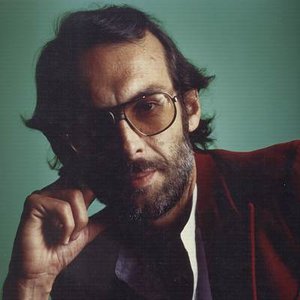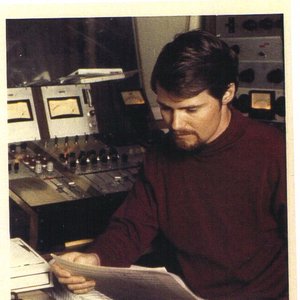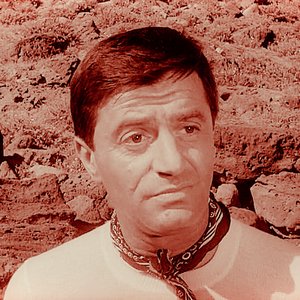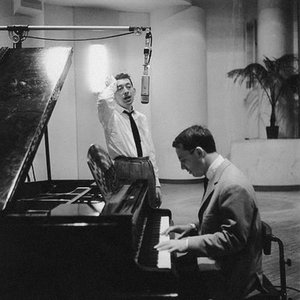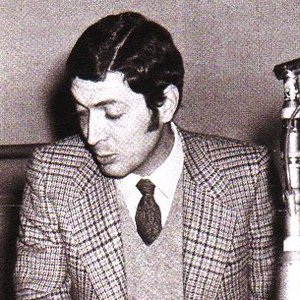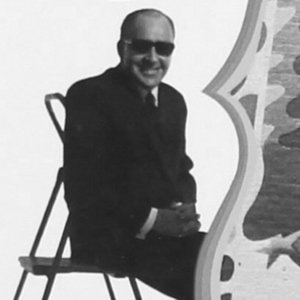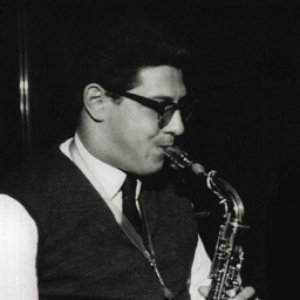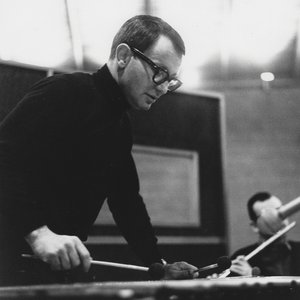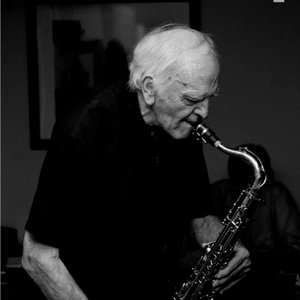Biography
-
Born
1945
-
Born In
Bauru, São Paulo, Brazil
-
Died
2006 (aged 61)
Arranger and writer, Hareton Salvanini was born in Bauru and grew up in Campinas, Brazil.
A daring musician, Hareton Salvanini is revered among music lovers, especially Brazilian music. He was responsible for an immense artistic production, participating in several important albums of our music, also producing themes for films, TV programs, radio and so on. Jingles machine, he was the author of at least 5,000 jingles and musical themes for advertisements.
Experienced musician, responsible for a series of film soundtracks, television program vignettes, commercials and jingles. Hareton was born on September 25, 1942 in the city of Bauru, in São Paulo. He began his artistic career early, at the age of three, performing in auditorium programs, being strongly influenced by his father, the singer and guitarist Luwino Salvanini. From an early age, Hareton Salvanini demonstrated his creativity, exploring jazz and classical music. At fifteen, he was already standing out as a pianist and singer in orchestrated musical groups.
Amidst the musical effervescence that was occurring at that time in Brazil, with the Bossa nova movement, Hareton Salvanini, just seventeen years old, was widely influenced by this new sound trend. So, he formed the Hareton Trio, and started to perform at festivals alongside renowned Brazilian music artists, such as Wilson Simonal, Elis Regina, Jair Rodrigues, Johnny Alf, Airto Moreira, etc. As well as participating in performances in notable places on the Brazilian music scene, including O Beco, João Sebastião Bar and Teatro Leopoldo Fróes, where he shared the stage with Johnny Alf, Tim Maia, Flora Purim and Airto Moreira.
In 1970, at the age of twenty-eight, Hareton released, together with his brother, one of the most innovative double compacts of the time, entitled “KM 110”, under the pseudonym Hareton + Meta. The album is a fusion of psychedelic pop, baroque pop, jazz-funk and MPB, characterized as a lysergic work with strong poetic influences, which refer to tropicalist productions.
As a result of these achievements, in the same year, conductor Hareton Salvanini received an invitation from Brazilian director, screenwriter and film producer Roberto Santos. Hareton was invited to produce the soundtrack for the film Voices of Fear, which unfortunately ended up being censored by the military dictatorship, only being released in 1974.
Then, due to his prominence as an arranger, conductor and pianist, Hareton Salvanini was invited by the Continental record label to produce his first LP, the acclaimed S.P. 73, an album that ended up becoming his cult work within his brief discography. To produce this album, Salvanini assembled a true orchestra, with renowned Brazilian musicians, such as guitarists Caetano Domingos Finell and Marcelo Dworecki, bassist Gabriel Bahlis and guitarist Heraldo do Monte, who accompanied him in much of his subsequent discography.
Unfortunately, due to the enormous success of the group Secos & Molhados, a large part of the record company's collection was melted down to produce more of the group's records. Among the materials that were destroyed were copies of S.P. 73 by Hareton Salvanini, as well as other classics, such as the 1972 LPs by Arthur Verocai, Célia, Tom Zé and the album Ou Não by Walter Franco, released in 1973. This event contributed to the greater obscurity of maestro Hareton Salvanini, making his album a true rarity and an object of desire for collectors around the world, so that it ended up acquiring cult status among lovers of Brazilian music.
Hareton Salvanini was an artist attentive to international musical trends and used to travel extensively throughout Europe, especially Italy and France. During his travels, he came into contact with the hugely successful disco music group Earth Wind & Fire, and he immediately absorbed the entire music scene. It was in this context that he established a friendship with the talented arranger Lincoln Olivetti, who was also fascinated by the celebrated group's sound.
In addition to the influence of jazz-funk and classical music, Hareton Salvanini had a great appreciation for country music. Therefore, he included a track with these rhythms on his LP, entitled Amazônia. This musical diversity reflected the versatility and artistic eclecticism of Hareton Salvanini, who sought to explore different genres and styles in his career.
In addition to his intense work producing jingles and commercial themes, Hareton Salvanini also recorded the soundtrack for the film Xavana (An Island of Love), released in 1981. The film, a French-Brazilian co-production, was shown at the Festival de Cannes and directed by Zygmunt Sulistrowsky, who also directed The Virgin of Saint Tropez. Hareton counted on the collaboration of musicians such as Jerônimo Jardim (former group Pentagrama), Hélio Capuci, Walter Santos, Daniel Garcia, Nanau, Luca Maciel, Waltinho Luz, Fátima Mello and others in recording the soundtrack. The LP, released by the Fermata label, became a true rarity, featuring beautiful melodies such as Olhe Menina, in the best affable style of MPB and Bossa Nova, as well as being well accompanied by striking grooves, such as the track Growing.
Salvanini died in 2006.
Artist descriptions on Last.fm are editable by everyone. Feel free to contribute!
All user-contributed text on this page is available under the Creative Commons Attribution-ShareAlike License; additional terms may apply.

